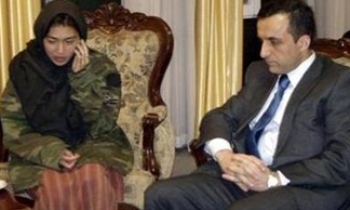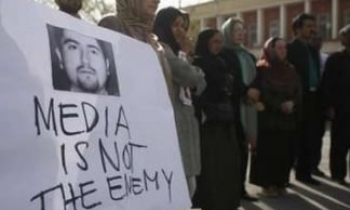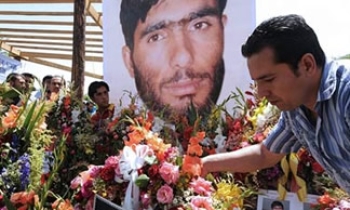An independent and free media may undermine rather than support the rebuilding of states in crisis and post-war situations, says a new report from academics at the London School of Economics and Political Science (LSE).

Why Templates for Media Development do not work in Crisis States: Defining and understanding media development strategies in post-war and crisis states by Dr James Putzel and Joost van der Zwan of LSE’s Crisis States Research Centre (CSRC) explores the development of media in developing countries affected by crises and war. According to the authors, rather than support the democratisation of a country, the liberalisation of the media could potentially undermine the state building project.
The authors’ work is based on a workshop, jointly organised by LSE, Annenberg School for Communication and the Stanhope Centre, which brought together academics, journalists and policymakers from Europe, the Middle East, sub-Saharan Africa, Central Asia and North and South America.
Dr James Putzel, reader in development studies and director of CSRC, said: “Traditional theory states that the creation of an independent media needs to be at the heart of efforts to consolidate security, effective government and development in the wake of crises and war. But our findings indicate that where the state is fragile, and where the political process is unstable and de-legitimated, the primary objective of donor assistance should be supporting the formation of a functioning state.”
Joost van der Zwan, policy and communications officer, CSRC, said: “The creation and sustaining of independent media is central to theories of democratisation. However, in the case of fragile states, it may also be misguided and potentially dangerous to assume that encouraging the creation of free and independent media will automatically strengthen civil society, or help establish a democratic system that will hold governments accountable. This approach underestimates the complexity of the contexts of fragile states.”
In the 1980s, the report notes, it became a standard prescription in postwar states that the proliferation of privately-owned media would contribute to the construction of more democratic and accountable states. This approach was based on the experience of established liberal democracies in the developed world, where privately-owned newspapers and television and radio stations and networks can act as a check on government. However, privately owned media organisations, particularly when there is a trend in the concentration of ownership in the sector, may contribute little to democratic deepening as they advance the interests of their owners and can come to manipulate the news for private benefit.
The report cites the example of the the South African Broadcasting Corporation (SABC). Under apartheid, South Africa’s media industry reflected the concentration of power and ownership in the hands of the white minority government. Radio and television broadcasts were aimed at specific races or ethnic groups, and at no point during apartheid did SABC have national coverage for its television and radio broadcasts.
SABC’s broadcasting had then served to reinforce the notion of distinct races and populations. Despite the end of apartheid and the liberalisation of the media, SABC has remained state-owned. In the last decade it has on several occasions attracted criticism for being a mouthpiece of the current African National Congress (ANC) government and failing to take a critical stance against the latter.

The example of Radio Okapi in the Democratic Republic of Congo (DRC), the report points out, shows how international organisations can contribute to the stability and development of countries experiencing violent conflict. Radio Okapi’s goal was to make a lasting contribution to media development and peace through the dissemination of reliable and credible information from an independent radio station.
Radio Okapi, financed by the United Nations and several bilateral donors through Fondation Hirondelle, has been able to provide the Congolese people with trustworthy information during times of heightened instability and violent conflict. It is the only media outlet in DRC that covers the whole country. The Congolese ministry of information has even recognised its importance and has said it does not want to take control of the radio because it does not have the capacity either to keep it going or to guarantee its independence.
One of the fundamental mistakes, the authors say, that has been made by donor agencies promoting media development strategies since the end of the Cold War has been the belief that postwar states could be approached in the same ways as transition states. The key difference between these two types of states is that transition states were generally moving from autocracy to democracy where a functioning state apparatus was already in place.
On the other hand, states emerging out of war or periods of breakdown often lacked the fundamental foundations and organisational systems required for a state to function. Therefore development programmes, including those for the media, cannot be implemented in the same way, the report says.
Two conditions, the authors say, are necessary to shore up the role that private media can play in fostering democracy. The first is a state strong enough to enforce laws against abusive practices by the private media (hate speech and libel). The second is a civil society developed enough to allow for the emergence of professional associations of journalists and publishers based on an ethos of journalistic integrity.
The report makes a number of recommendations for policymakers:
- Customise the media development strategies to context. Undertake a detailed diagnostic analysis of the complex political, economic and social background of the country, as well as of the nature of conflict, and the structures of government and citizens’ participation before and after a war, or period of violent conflict;
- Recognise that the development of an open and free media environment, like other liberal projects, requires the presence of a strong state which includes, among other features, a well functioning legal and judicial environment that is able to apply checks and balances;
- Where appropriate, allow and encourage judicious state regulation of the media during the initial phases of state building in order to minimise the potential for divisive violent confl ict and maximise the potential for building national cohesion;
- Where there exist credible organisations on the ground, donors should judiciously support media activities designed to provide balanced information in zones of violent conflict, but obviously this should be done with extreme care in situations of acute tension;
- Encourage national and local media initiatives not simply as a check on the state, but rather with the aim of contributing to the establishment of effective state organisations where they have collapsed;
- Consider supporting the establishment of a national broadcasting corporation with a national reach and detached from vested interests, where this can be governed by an independent board according to principles of journalistic integrity and public service provision. Such support needs to be long-term since, in fragile states and particularly post-war environments, it may be decades before such organisations can realistically be locally funded;
- Support media training programmes among journalists as well as members of political parties, that provide education about the ways media can be used in the political arena, the ways media can consolidate a credible political system and that provide skills for journalists to analyse political, economic and social trends. Programmes that promote greater reflection on the part of media practitioners themselves should be encouraged;
- Support the establishment of professional associations of journalists that are committed to an ethos of journalistic integrity and investigative journalism which can eventually serve as the conscience within media sectors based on public and private ownership;
- Support research that examines the role of media in both state unravelling and state reconstruction, as well as the specific historical evolution of media in fragile states including particular experiences of violent conflict and war, and encourage the development of regional networks of local media researchers;
- Support the evolution of domestic and international laws that protect information flows and constrain hate speech; implementation would need to be overseen by a neutral organisation, such as a regional grouping (like the Organization for Security and Cooperation in Europe — OSCE) or an existing UN agency to ensure against abuse or manipulation;
- Support dialogue (through conferences and workshops) among international and local actors that examine the complex ways media is interconnected to broader development and reconstruction efforts;
- Support efforts within UN to establish systemic crisis intervention approaches, fully authorised and capable of acting expeditiously and mindful of the appropriate roles of the state and media in post-war environments.









